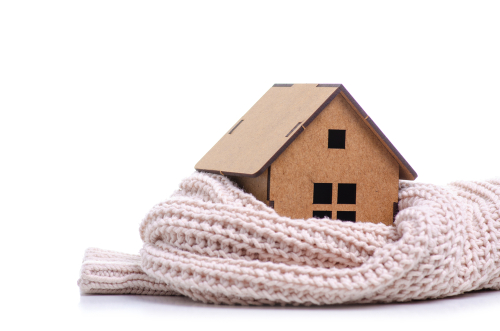Written on: October 14, 2019
 Most furnaces and boilers have a lifespan of around 15-20 years, though homeowners who have performed annual maintenance may enjoy longevity with their system. However, if your heating system is reaching its expiration date, it’s important to start looking for telltale signs your system needs a replacement.
Most furnaces and boilers have a lifespan of around 15-20 years, though homeowners who have performed annual maintenance may enjoy longevity with their system. However, if your heating system is reaching its expiration date, it’s important to start looking for telltale signs your system needs a replacement.
Don’t get caught with a faulty heating system as winter begins.
The most common red flags homeowners should look for as their heating equipment ages are:
Each of these factors can mean that your system isn’t working as efficiently—or cleanly—as possible. Maybe an obvious indicator, but if you’ve had to call up the repair team more often than usual, it may be another sign that it’s time to replace your heating system.
If you start to notice the signs of aging or inefficiencies in your system, it’s time to ask if a replacement or continued repairs is the best option. It’s a hard decision to make as the upfront cost of a new heating system can be expensive. But, so are continued repairs and maintenance on your system.
If your heating system is less than 10 years old, it’s likely not ready to be replaced quite yet. Of course, every situation is unique. Work with an HVAC company to learn the extent of damage to your system so you can accurately assess if it’s best to replace or repair.
On the flip side, if your machine is older than 15 years, don’t jump the gun when it comes to replacing your system. Instead, thoroughly examine the operation of your existing equipment:
Look for other, potentially dangerous signs like:
These signs could indicate your burner is not working correctly and could indicate your system is producing carbon monoxide. Though carbon monoxide is nothing to fool around with, the problem can be fixed through a repair, not necessarily an entire system replacement.
Important note: What type of refrigerant does your heating system use? In January 2020, systems that require R22 refrigerant will need updates. If your system uses R22, you’ll need to retrofit your existing equipment to work with newer refrigerants, or you’ll need to purchase a new system.
If your system is beyond repair— or needs an update to stay compliant with the R22 update— there is a silver lining. A new heating system will provide you:
When you make the big decision, consider the following factors:
How you fuel your new heating system will be one of the most important choices you make. Though there are plenty of furnace and boilers that run off natural gas. However, if your home isn’t already equipped with a natural gas line, be prepared to spend money on costs like:
These costs can rise to more than $10,000 for homeowners who need a complete conversion.
For homes that don’t have natural gas pipes, heating oil and propane are particularly common sources for fueling furnaces and boilers, especially for homes in the northeast.
While both options work well, homeowners may spend a bit more on the upfront investment for a boiler.
Homeowners also complain that furnaces are more susceptible to breakdowns. To prevent untimely repairs, homeowners must keep a more careful eye on routine maintenance and regular cleanings. In many cases, homeowners say that apart from an annual inspection, boilers require much less attention.
The cost of your new heating equipment will vary based on the type of equipment you select.
For example, the cost to purchase an install a boiler can be 2-3 times more expensive than the cost of a furnace. The average costs are as follows:
Installing a new furnace will cost somewhere between $1,200-5,000 depending on the fuel it runs on. A boiler, on the other hand, can cost between $5,000 and over $8,000 depending on the fuel it runs on.
A faulty heating system can turn a cold winter day into a dangerous emergency. Especially if you don’t have a backup generator on hand.
Before winter hits, it’s wise to call in an expert for an annual inspection and home energy audit.
If you think it’s time to replace, your technician can also assist you with the process. From determining the proper fuel to selecting the best equipment for your home, work with an expert to ensure your house isn’t left without heat this winter.